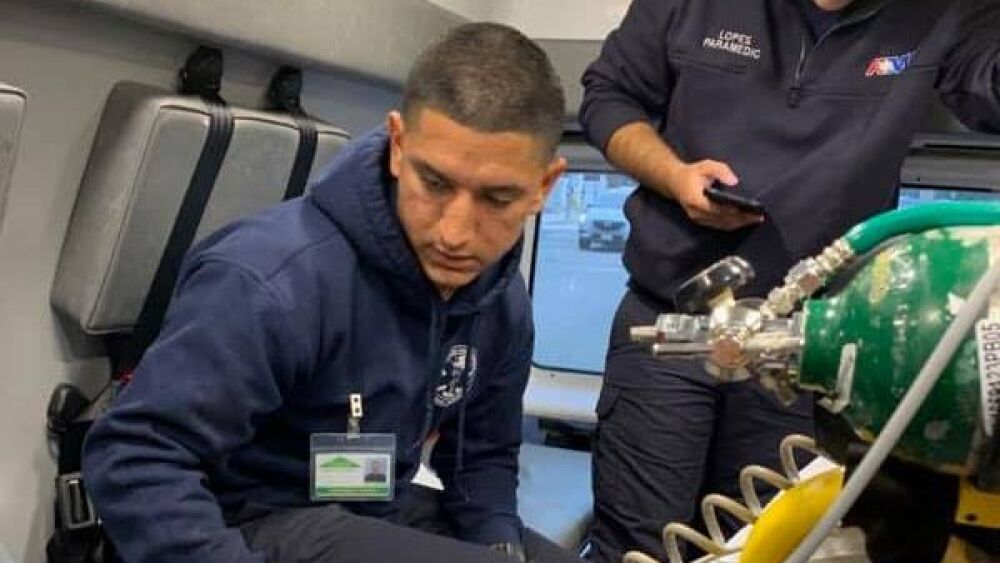By Jay Fitch, PhD
There are many parallels between EMS and aviation. Both professions require an enormous amount of commitment, sacrifice and training. With discipline and professional execution, both yield astounding accomplishment, while complacency and inattentiveness can yield disastrous outcomes.
It’s important to consider what one does after training and before mastering a profession. In aviation, a newly minted private pilot is given some of the same responsibilities and authorizations shared by a senior airline captain. I see many similarities to the newly graduated medic working among his more seasoned peers with 15 years of experience and thousands of runs under their belts.
The day after graduating, young medics start a shift. Does that make the young medic, or aviator for that matter, less able to perform the task at hand? Everybody wants an experienced medic to take care of them, but that’s not always the reality.
Self-respect and accelerated learning in EMS
Perhaps the most important quality of the young medic or aviator is a healthy degree of self-awareness and a respect for the task at hand. If the adverse attitude is a feeling of inadequacy, the antidote would be a never-ending quest for knowledge and skill, rather than defensive posturing. With that in mind, I think that asking for help or an opinion is an incredible resource.
Asking a friend or mentor for help is a great way to accelerate learning. We can rely on the experiences of our mentors until we develop our own. Reaching out to a mentor or colleague can oftentimes be incredibly helpful and provide a different perspective that may not have been considered.
Experience is neither bought nor awarded, it is earned slowly and carefully. Every proverbial journey starts with the first step; sometimes we need to be reminded to enjoy ourselves along the way. The professional journey typically takes from 3-7 years to be great, depending on how often and how much you do it.
In Malcolm Gladwell’s New York Times bestseller, Outliers, he frequently talks about the 10,000-Hour Rule, citing it as “the magic number of greatness.” The book looks at a number of outliers – people who are extraordinarily proficient in certain subjects or skills. It then tries to break down what helped them to become outliers.
According to Gladwell, one common factor among these carefully selected individuals was the amount of time they practiced within their area of study. It appeared that only by reaching 10,000 hours of practice (that’s about 90 minutes per day for 20 years) could one become an outlier. To use another of Gladwell’s popular terms, 10,000 hours is the “tipping-point” of greatness.
While it may take years to become great at something, it also depends on how often and how much you do it. Despite Gladwell’s 10,000 hour estimate to master something, I think it varies from person to person and depends on the skill and other factors.
EMS experience vs. proficiency
One thing I know for certain: experience does not equal proficiency. There are basic numbers expressed by regulation that define a minimum required. How comfortable would you be with a medic, or pilot for that matter, that hangs a sign on the wall, “We guarantee to have at least the minimum qualifications?” As an instrument-rated pilot, I am legally required to execute, at a minimum, at least six (real or simulated) approaches every six months. That said, being proficient means going beyond the minimum standards. Mastery as a pilot or a medic requires even more.
In a 2016 Time Magazine article, Eric Barker made a number of suggestions (shared below with some of my own tongue in cheek comments added) on the best way to become an expert:
- Be in it for the long haul. It takes time to be good and even longer to be great.
- Find a mentor. Luke Skywalker had Yoda. The Karate Kid had Mr. Miyagi. Who do you have?
- Start with what’s important. Which 20% of these things I need to learn will get me 80% of the results?
- Train like you fight. Book learning goes only so far, practical experience is better.
- Use desirable difficulty. Easy in, easy out. Your brain encodes information better when you struggle.
- Get fast, negative feedback. If you’re not an expert, the outcome in a life-threatening situation is much worse when you make a mistake.
- Study less. Test more. Test before the test and the test will go better.
- Naps are steroids for your brain. You’re not sleeping on the job, you’re passively synthesizing skills (this concept does not work if you flying alone!).
All kidding aside, mastery in our field is something to be valued, and pursued relentlessly. Albert Einstein said it best many years ago: “Only one who devotes themself to a cause with their whole strength and soul can be a true master. For this reason, mastery demands all of a person.”
About the author
Jay Fitch, PhD, is the founding partner of the EMS/public safety consulting firm Fitch & Associates. He has been an instrument-rated pilot for over 15 years. He serves as the co-chair of the Pinnacle EMS leadership conference and is a founding commissioner of the American College of Paramedic Executives. Contact him at jfitch@emprize.net.
Read next: 5 ingredients for psychomotor mastery
This article was originally posted May 13, 2019. It has been updated.



